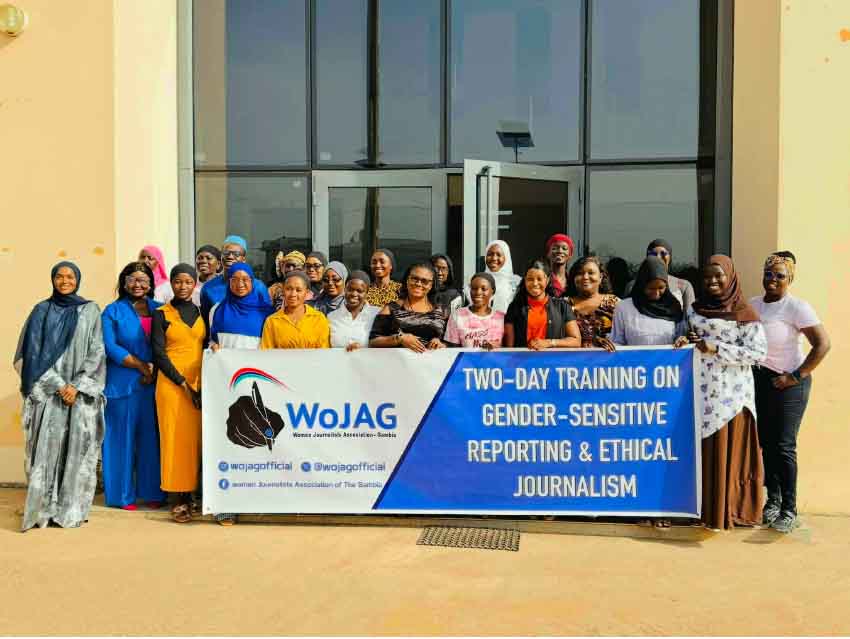Banjul, 3rd March 2025: The Women Journalists Association of The Gambia (WoJAG) on Friday, February 28 concluded a two-day training for 25 female journalists from online, print and broadcast media, held at Kanifing.
The aimed of the training was to equip the journalists with right information on gender sensitive reporting and ethical journalism, and on Sexual and Gender Based Violence.
In his statement at the opening of the training, Sheriff Saidykhan, the Vice President of the Gambia Press Union (GPU) expressed the Union’s delight associating itself with this important capacity-building, noting that the GPU has a policy on sexual and gender-based violence, which primarily focuses on preventing and addressing workplace sexual harassment within media houses.
He made reference to the Cherno Jallow Charter for Ethics which provides fundamental guidelines for journalists, addressing key issues such as gender and sexual violence.
Saidykhan said ethical journalism plays a crucial role, as it enhances public trust, and ensure credibility of the media.
“Over the past decades, the Gambia Press Union has committed itself to promoting and ensuring journalism excellence in the trade,” he asserted.
Annette Camara, President of WoJAG, explained that the training is part of a project under the PWD Grants, supported by the US Embassy, and launched in October last year.
She revealed that they have had a media tour in rural Gambia, where they had engagement with community radios, to understand the issues they face in the media landscape and how they can support in terms of capacity building, bridging the gender gap, employment, and contracts.
“It is very sad that in all the community radios we visited, there is no more than two female employees. Most of them are there as volunteers or as interns for as long as four years. That is not anything positive,” she lamented.
The WoJAG president therefore challenged female journalists to use their platforms to tell their own stories. “We have our mics; we have our pens; our phones; the digital space; and we have the newspapers, and magazines. We are not talking about issues that are affecting us as women directly on our platforms,” she queried.
Ms Camara encouraged women journalists to report about women and address issues of their concern, in order to change the conditions of women in leadership, in politics, women in agriculture. She warned: “If we are not physically, mentally and emotionally prepared to get this story running, I am not sure we can ever achieve the advocacy of gender sensitive reporting”.
She went on: “Given the importance of this training in shaping responsible journalism and amplifying the voices of survivors, we kindly request women in the media to actually take up the task and the challenge to change the dynamics and shatter the glass ceiling in the media”.
She reminded that the International Women’s Day celebration is due this month, March, and that they are looking forward to reflecting on the issues of women including in the media – progress and challenges and to proffer solutions.
By Aji Fatou Jammeh







